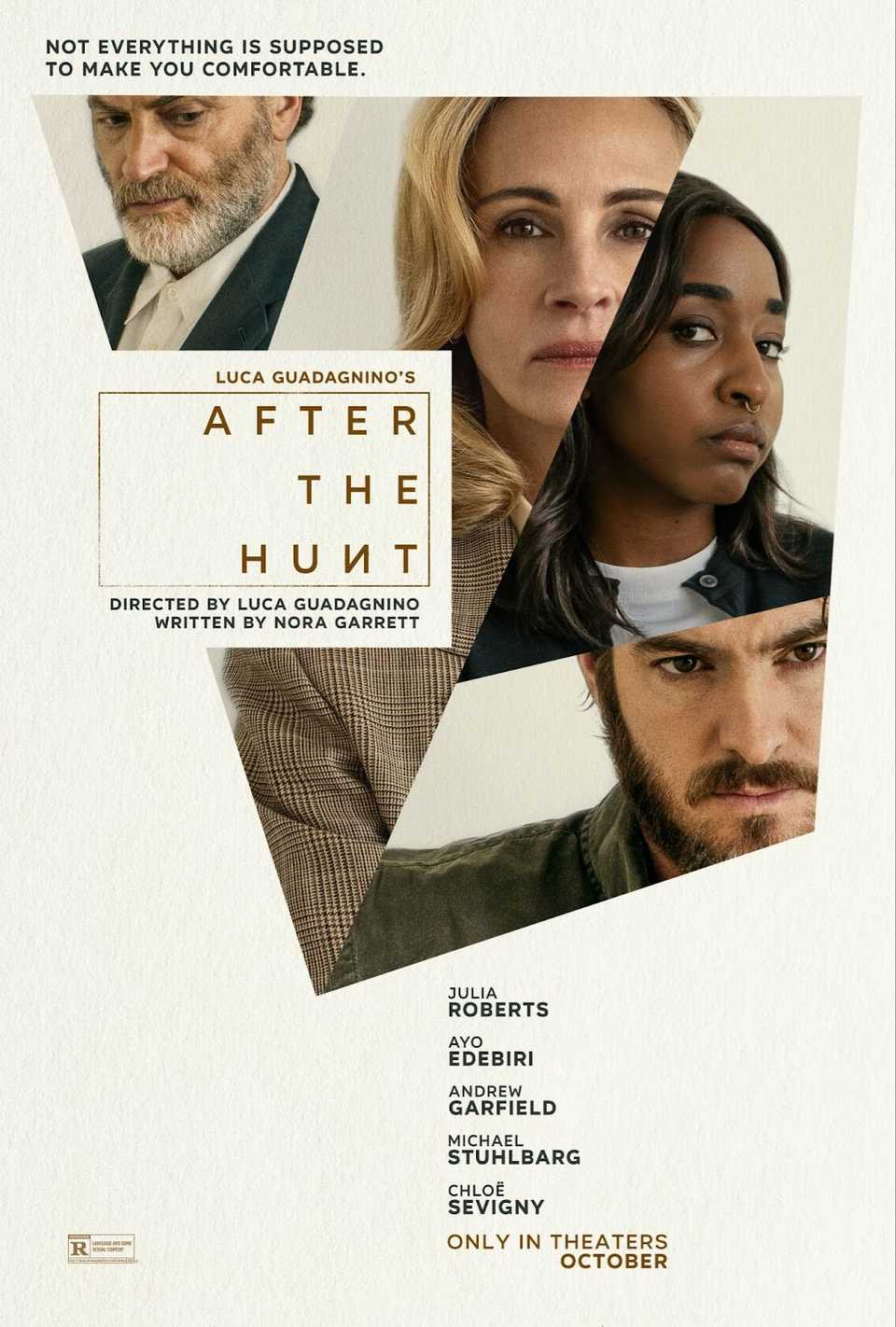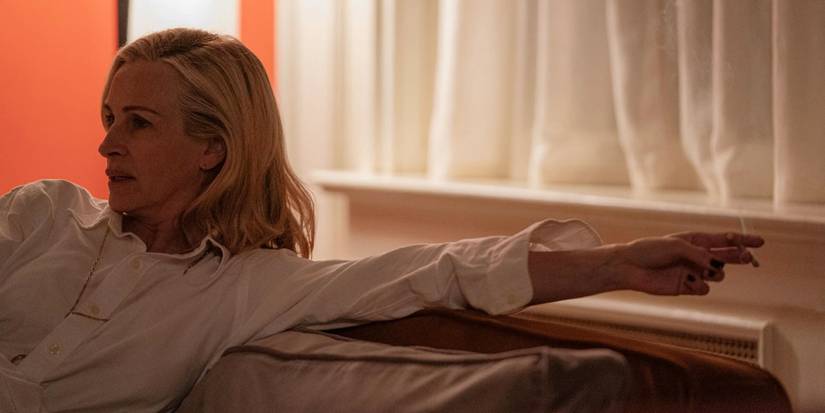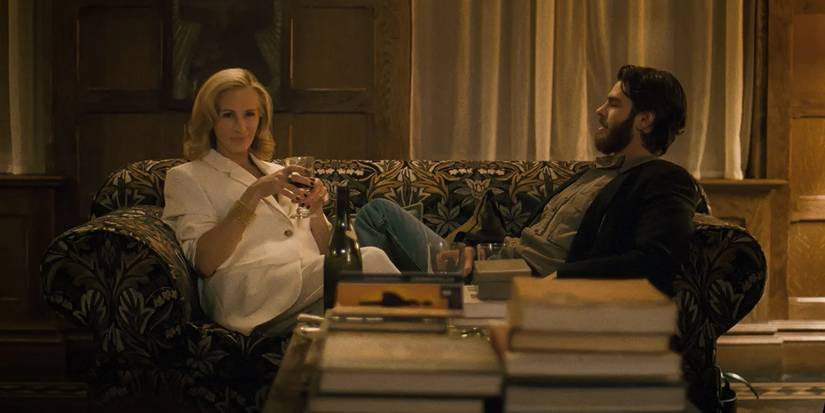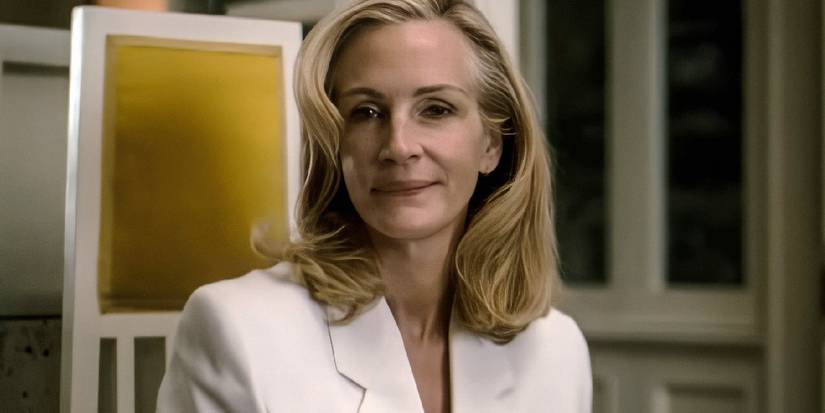After the Hunt’s ending has plenty of layers to break down, from its characters’ fates to deeper, thematic explorations. After the Hunt’s mixed reviews have rightfully labeled the film as a divisive, provocative exploration into prevalent social issues, bringing stars Julia Roberts, Ayo Edebiri, and Andrew Garfield together for a psychological thriller surrounding a student’s accusation of assault against a professor at Yale University. Given the pertinence of the #MeToo movement, the film’s ideas are bound to stir up conversation.
Filmmaker Luca Guadagnino (Challengers) brings After the Hunt home with an epilogue scene, revealing the fates of Alma (Julia Roberts), Maggie (Ayo Edebiri), and Hank (Andrew Garfield), five years after the controversy. Alma is now a Dean at Yale, suggesting she rebounded at some point after Maggie’s disparaging op-ed. Maggie is engaged and confesses her past confusion surrounding Alma, stating she’s unclear if she wanted to be her, or to be with her. Off-screen, Hank is a spin doctor working in politics.
Who Told the Truth: Maggie or Hank?
The short answer here is that After the Hunt doesn’t provide a concrete resolution as to who was right or wrong. This might come as a disappointment to audiences, but not having a clear “winner or loser” allows the viewer to engage with the characters as they see fit, forming opinions on Maggie and Hank’s actions and behavior. Since the audience doesn’t see what happened behind closed doors, the situation must be approached similarly to how Alma, or other characters, view it.
That said, it’s still worth breaking down the facts, as well as the characteristics on display for each party. Hank is a man with rather abrasive qualities from the get-go. Whether it be a touch on the leg or a close-up camera shot to demonstrate his discomforting invasions of personal space, it’s clear that Hank is willing to cross boundaries, and he does at multiple points. He’s extremely critical of younger generations for their desire for comfort and numerous rules and hypocritical standards, and while he does have some worthwhile thoughts, his statements reek of arrogance, generalizations, and an overall lack of empathy and understanding.
Hank, critically, has the cadence of a liar. There are times when his expressions of situational and self-understanding help him sell his point, but the diner scene, where he makes his case to Alma, evidently highlights his penchant for theatrics. The most important takeaway is in his later scene with Alma, where Hank assaults her in her apartment, proving that he’s capable of doing what Maggie accused him of. It could very well be true that he did it; he even admits he lacks understanding of his own wrongdoing.
The complicated part of the dynamic comes from Maggie, who’s far from perfect herself. Hank’s defense is that he tried to push Maggie’s boundaries in hopes of eliciting a confession that she plagiarized her dissertation, an element that turns out to be true. Not only does Alma recognize the plagiarism, but audiences also see Maggie copying Alma’s words later on to use in the op-ed against Hank. Maggie doesn’t express guilt for cheating, which could mean she’s lying about other things.
Much of Maggie’s stance is built against Hank’s privilege, victimizing herself as a Black woman in a male-dominated field. However, it’s revealed that Maggie comes from extraordinarily wealthy parents whose influence likely got her into the school in the first place. Audiences are left with two characters, neither of whom is particularly sympathetic, who are both likely sharing their respective versions of the truth. The question of who’s telling the truth, therefore, ceases to matter for the purposes of the film.
Alma’s Life & Backstory Explained
Before diving into the film’s meaning, it’s also worth exploring Alma, who she is, and what her perspective is. She’s been married to Frederick (Michael Stuhlbarg) for decades, though the two have reached a point where the passion has fizzled, and all that’s left is brutal honesty and the comfort of companionship. Frederick, a psychologist who understands his wife better than anyone, is willing to be open in his critique of Alma’s choices and the others around them, but he still expresses love and devotion.
Alma, on the other hand, doesn’t feel any romantic spark toward Frederick. She doesn’t seem to care when she finds his laptop open to porn, she openly admits to her desire for other men, and vaguely acknowledges her romantic passion for Hank. Given that Maggie also has feelings for Alma, it’s possible that Maggie could want Hank out of the picture, adding to her potential motivation.
Alma has also gone through a similar situation years ago, which she admits to Frederick. She’s spent her whole life feeling guilty for exposing one of her father’s friends, who, when she was fifteen, groomed her and eventually slept with her, which she claims was because she forced him to. Years after her article defaming him, the man died by suicide. Despite Frederick’s sympathy, telling her that the situation was not her fault and that, even if she thought she wanted sex, it was the adult’s responsibility to decline.
There are parallels to explore across all the relationships in this film. As with all of Luca Guadagnino’s films, sex plays an important role as a driving force behind characters’ actions. The confusion surrounding sex and the fulfillment of sexual desire is a drain on every character. They all want their desires to be fulfilled, but they don’t understand those desires, and this leads to unpredictable behavior.
What Does ‘After the Hunt’ Mean?
In Alma’s intense teaching scene, she accuses her student, Katie, of applying an abstract concept to a binary situation. These philosophical debates matter, as what Alma accuses Katie of, After the Hunt essentially accuses the audience of. The film uses a contemporary, relevant situation that viewers are likely to have strong feelings about as a vessel to disarm its audience. Luca Guadagnino knows that audiences will take sides and form preferences over the characters, just like how fans reacted to Challengers. But, while it’s certainly not wrong to analyze this specific case, it’s not exactly the point.
After the Hunt uses Maggie and Hank’s situation and, on a broader scale, cancel culture as a personalized representation of larger, abstract issues about ethics and guilt in human society. Like Alma says at the start of the film, cancel culture isn’t new; the angry mob with torches and pitchforks has always been the judge, jury, and executioner of human wrongdoing. With that in mind, human morality becomes a game of perception, not actions.
Alma, Maggie, and Hank all tell lies to try to make themselves appear as better, more morally just people, and the film explores how, when societal movements like #MeToo come along, the social climate and construct of morality shift. The film takes an almost nihilistic approach to this, with all its characters regurgitating philosophical arguments about ethics, yet consistently doing the wrong thing, suggesting that morality is just a guise for people to uphold as a component of their social reputation.
There are numerous philosophical and cultural references throughout the film, including two surrounding Kim (Chloë Sevigny), the school psychiatrist who consistently pushes the moral boundaries of her profession by revealing information, then draws the line when Alma steals her prescription pads to forge a pharmaceutical request.
When at the bar with Alma, Kim notes her surprise that they’re playing music by Morrissey, the highly controversial lead of The Smiths. Alma corrects her, saying it’s not Morrissey, but The Smiths. She’s not wrong, but the scene suggests that the band name allows listeners to depersonalize themselves with a controversial figure. Kim also has a film poster of Clint Eastwood’s Dirty Harry in her office, again hiding her admiration for a controversial man by depersonalizing him as a movie character.
These are brief, naturalistic examples of the film’s themes, exploring the arbitrary boundaries of tolerance set by society to permit the work of controversial people. Kim is capable of liking The Smiths and the Dirty Harry franchise, just like how the film’s intellectuals study the work of philosophers like Nietzsche, many of whom they acknowledge to be awful men. Guadagnino is trying to suggest that it might not be a drastic stretch to permit someone like Hank, until, that is, the rioting mob of society tells them not to.
Why Does ‘After the Hunt’ Matter?
After the Hunt is a timely film with timeless subject material, but it’s evidently not landing with a significant portion of its audience. Luca Guadagnino purposefully tries to make his audience uncomfortable by using a situation that audiences have such high stakes in, but this almost detracts from his thematic exploration. This is because, while false accusations do exist, they are rare, at less than 10% (via NSVRC). Many of the film’s viewers feel that bringing A-list actors to the table for an exhibition of one of these rare cases for a baseline study of human ethics might be distasteful, given the barriers women already face in speaking out.
A provocative film isn’t necessarily a bad film, and the presence of social issues can often undermine or overvalue a movie in a way that’s reductive to the medium. In this case, the problem with After the Hunt isn’t necessarily that it’s exploring sensitive material, but that its philosophical, thematic questioning is too shallow to merit the ambiguity and sense of moral mystique it’s trying to impose on real-world human behavior.

- Release Date
-
October 10, 2025
- Director
-
Luca Guadagnino
- Writers
-
Nora Garrett




